On October 6, Khmelnytskyi National University hosted a lecture by Prof. Nataliia Yehorchenkova, M.Sc., PhD, Dr.Sc., a researcher from the Department of Spatial Planning, Spectra CE EU Institute of Management at the Slovak University of Technology in Bratislava (STU Bratislava).
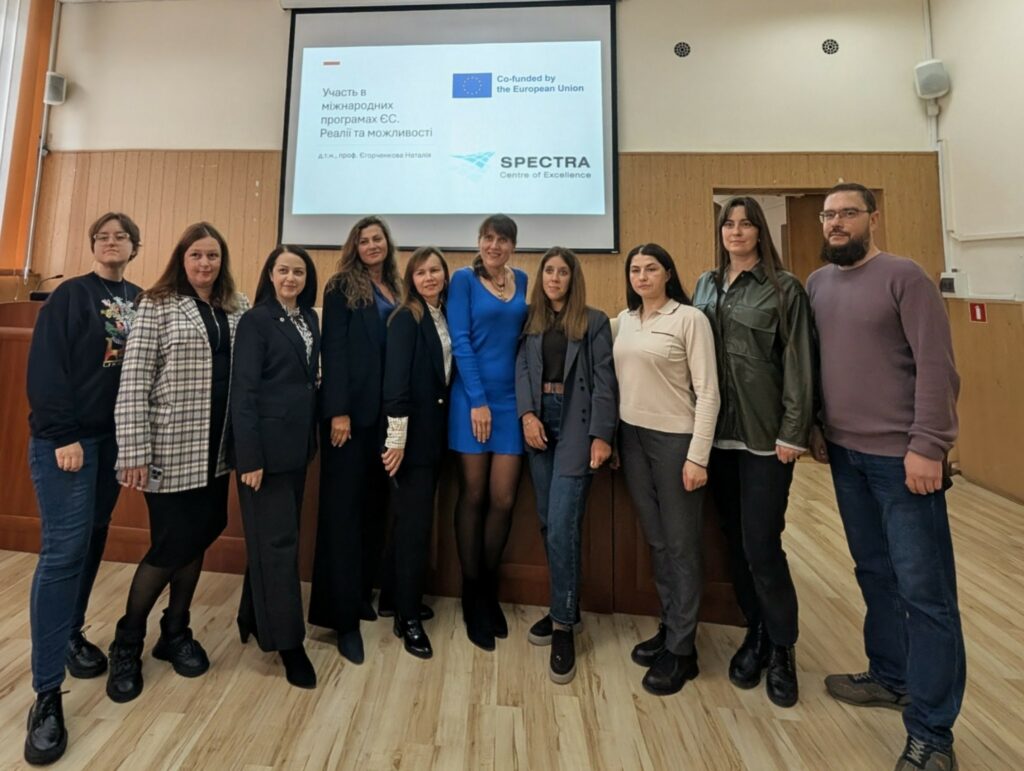
Before the event began, the lecturer was welcomed and introduced by Kateryna Skyba, Vice-Rector for Research and Educational Affairs at KhNU, who highlighted the importance of the university’s international cooperation and thanked Ms Nataliia for her willingness to share her expertise.
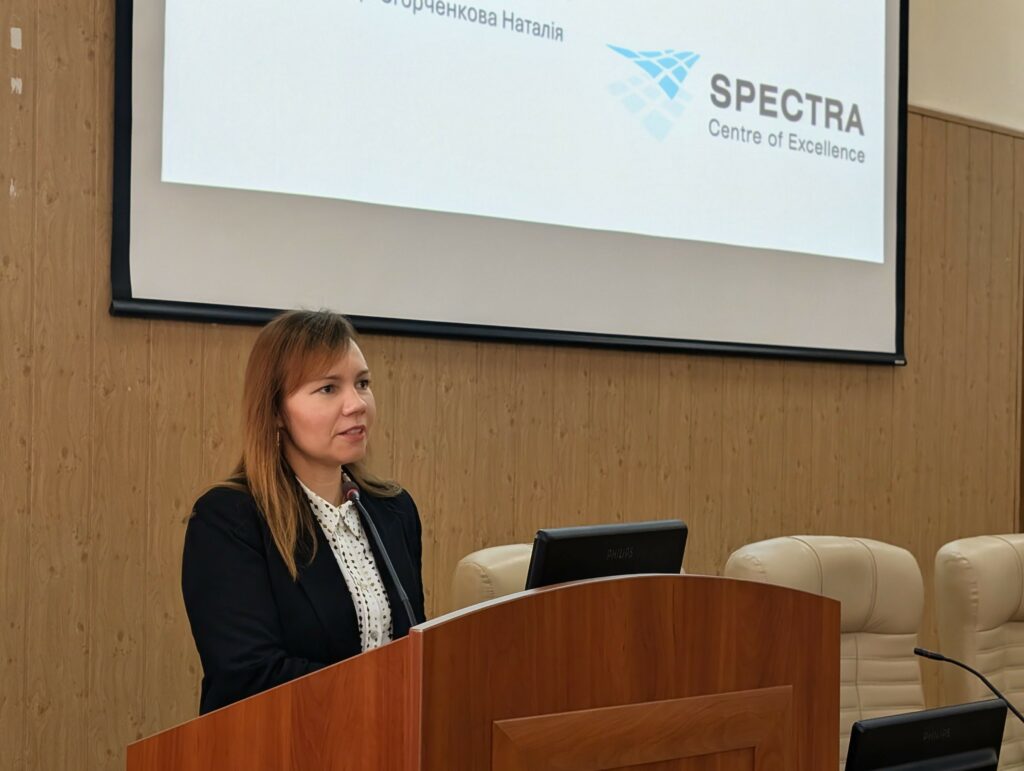
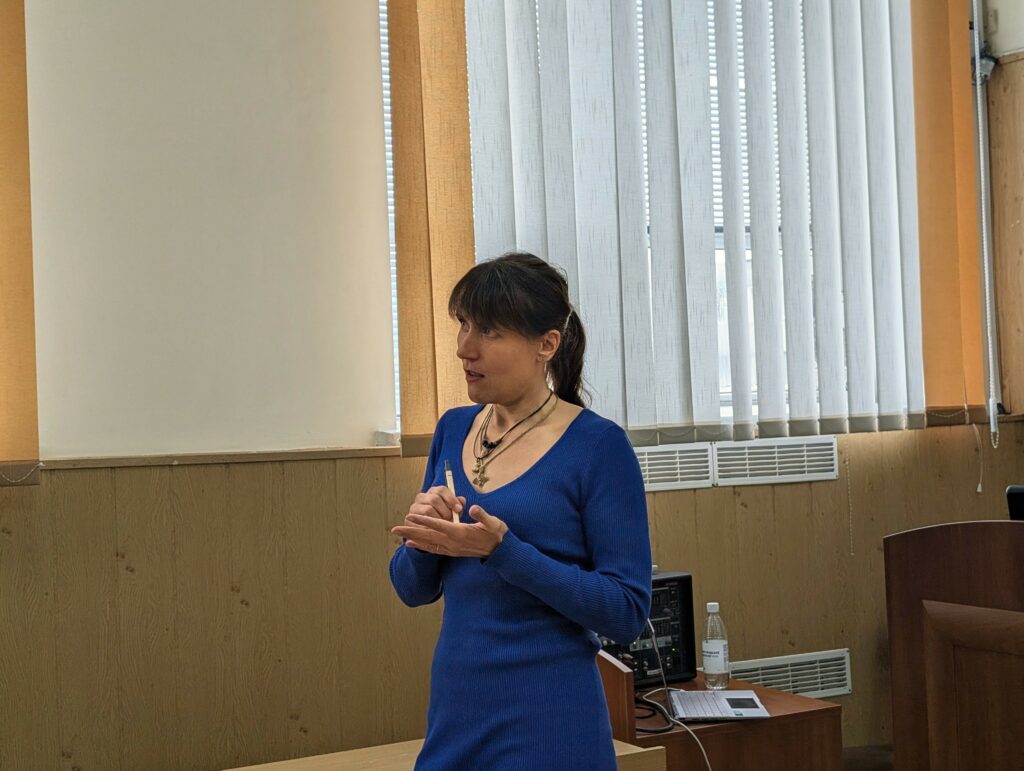
The lecture covered key directions of the European Union’s international programmes:
- Erasmus+: Experience of participation and prospects for future cooperation between universities;
- Horizon Europe: Opportunities for researchers and higher education institutions;
- Interreg: Examples of successful cross-border projects;
- National Scholarships of the Slovak Republic: Practical advice for students and applicants.
During her presentation, Ms Nataliia shared her personal experience in implementing international research initiatives, participating in European grant programmes, and forming partnership consortia. The lecture was conducted in a dialogue format, allowing participants to actively ask questions, share their own experiences of international cooperation, and discuss opportunities for further integration into the European scientific community.
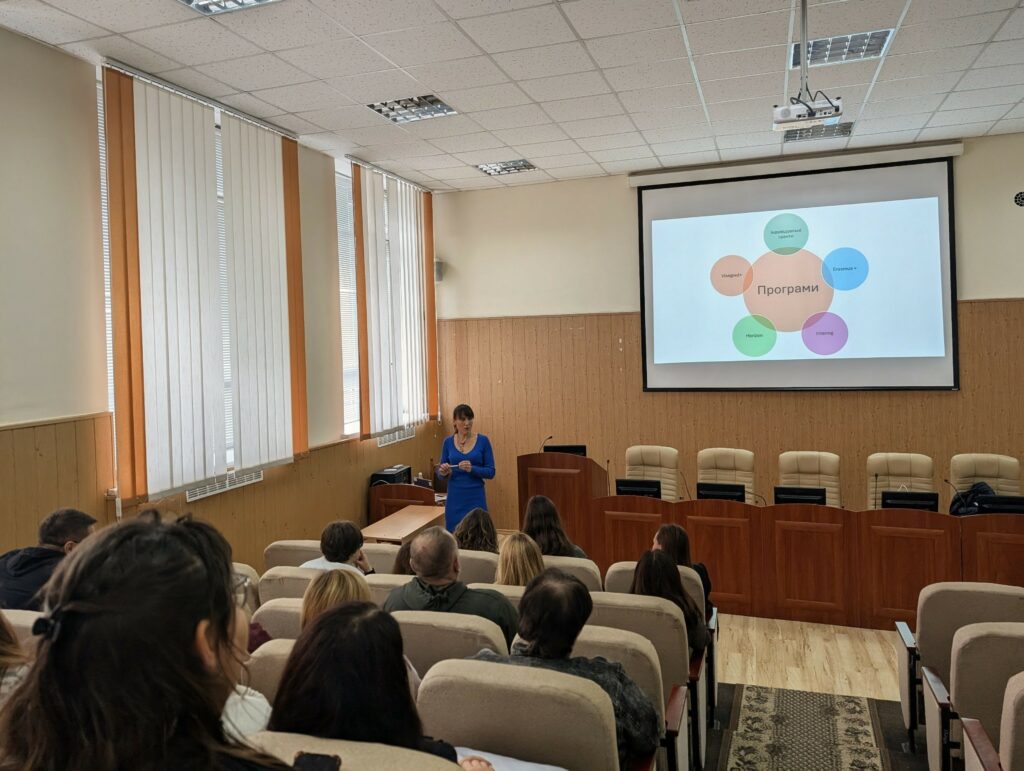
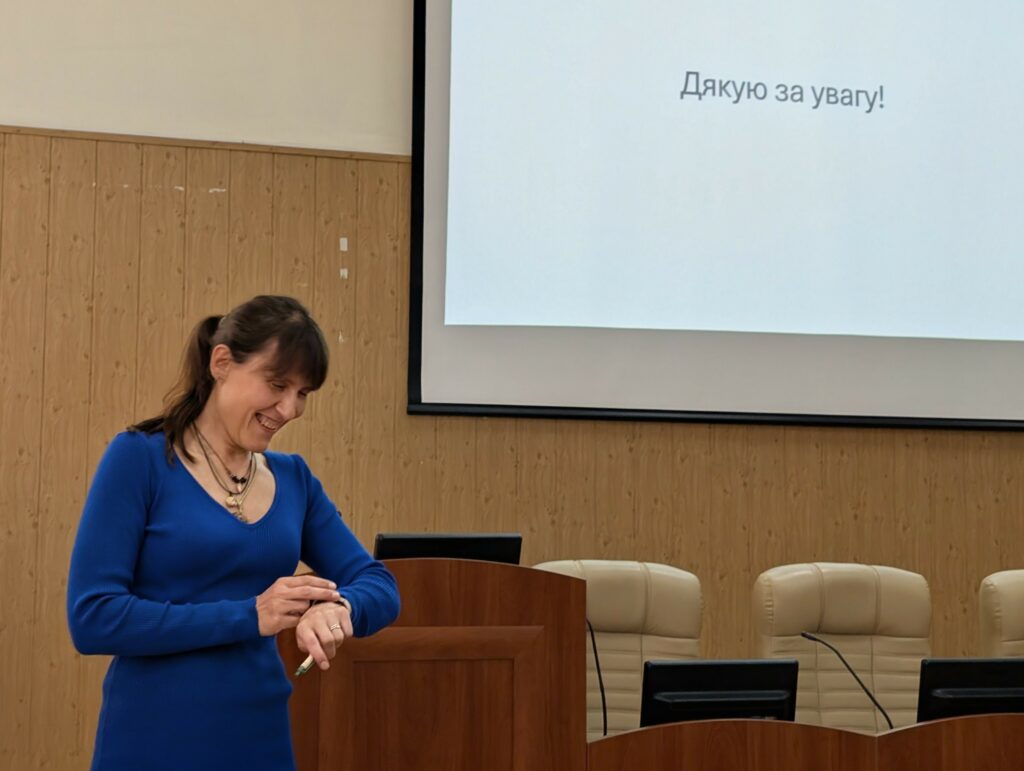
Khmelnytskyi National University and the Slovak University of Technology in Bratislava collaborate within the framework of the Erasmus+ Programme. As a result of this partnership, KhNU representatives have already successfully completed a number of academic mobilities:
- A university student completed a semester-long study period at STU (https://khmnu.edu.ua/akademichna-mobilnist-u-slovachchyni-istoriya-studentky-hnu/ );
- Specialists from the International Relations Office participated in Staff Training Week in Slovakia (https://khmnu.edu.ua/mizhnarodna-aktyvnist-hnu-uchast-vmz-u-5-mu-international-staff-week-na-bazi-slovaczkogo-tehnichnogo-universytetu/ );
- A KhNU lecturer conducted a teaching mobility under the Erasmus+ programme.
Such exchanges contribute to broadening professional horizons, improving educational programmes, and forming a common scientific space among European universities.
Khmelnytskyi National University extends sincere gratitude to Nataliia Yehorchenkova for the extremely informative and inspiring lecture, and to the Slovak University of Technology in Bratislava for the fruitful cooperation, support of academic exchanges, and openness to new scientific initiatives.
We are confident that the continued partnership between KhNU and STU will serve as a basis for the development of joint projects, academic, and research programmes that strengthen European integration in the fields of education and research.